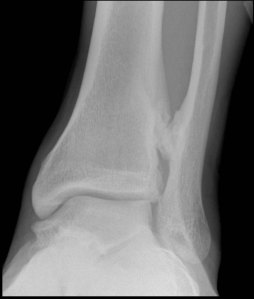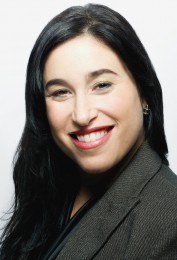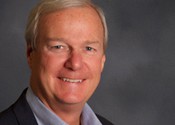From Fundraising
iRhythm team shares success story at this year’s SBAA annual alumni event
This year’s Biodesign Alumni Annual Event featured a panel discussion with the iRhythm team. The San Francisco-based company has changed the way cardiac arrhythmias are diagnosed through their cloud connected wearable biosensing technology. Panel members from iRhythm included Founder and former CMO Uday Kumar, Derrick Sung (Executive VP, Strategy & Corporate Development), Mark Day (Executive VP of R&D), and iRhythm’s CEO Kevin King, who brought the company public.
Can Y Combinator companies hack medtech?
Those of us who went through the Biodesign fellowship in recent years have heard many times how ridiculous it is to start a medical device company out of the program in the current environment. When my teammate, Shreya Mehta, and I told people that we were planning to do just that with an implantable device that was going to require clinical trials, a non-trivial FDA process, and third-party reimbursement, people looked at us like we were certifiably insane. So when we first went out looking for funding for Zenflow in late 2014, we knew we were going to have to bring our A-game and cast a broad net. Having witnessed a mass exodus of investors from early-stage medtech to the seemingly greener pastures of Healthcare IT and Consumer Software, we began compiling a long list of non-traditional investors, accelerators, and grant opportunities. As I had spent some time in the software world beforehand, I was familiar with Y Combinator (YC), the accelerator that started accelerators, and the place where startup unicorns – or even decacorns like Dropbox – were supposedly born. But why would this shrine to hackers that fully embraces Marc Andreesen’s “Software is eating the world” philosophy want anything to do with a company that has a purely mechanical product and comes from an industry that is not eating the world, but rather being eaten by it? Our hopes were not high to say the least. But sure enough, right there on YC’s Requests For Startups page was a beacon of hope: “Medical devices also seem like fertile ground for startups.” So you’re telling me there’s a chance!
AccessClosure – from extinction to distinction
On Monday, November 19th, Biodesign Alumni got to hear one of the most incredible turnaround stories in medtech history when Fred Khosravi, John Buckley, Greg Casciaro and Hank Plain shared the story of AccessClosure. Brought back from the brink several times (once after chance encounter in a department store checkout line) this story has the makings of a Hollywood cliffhanger and left the audience in awe.
Ulthera team shares key to success at this year’s SBAA annual alumni event
This year’s SBAA annual alumni event featured a presentation by Ulthera, the Mesa, Arizona-based aesthetic therapeutic company, along with a dynamic panel consisting of Matt Likens (Ulthera CEO), Michael Peterson (Vice President, R&D), Justin Klein (NEA), and moderated by Alan Mendelson (Latham & Watkins). The jam packed event also consisted of a presentation by Jonathan Norris, Managing Director of Healthcare at Silicon Valley Bank, to provide a medtech investment update.
Ulthera’s signature technology is used in the Ultherapy procedure, which is FDA-cleared to lift skin above the eyebrow, on the neck and under the chin, as well as improve lines and wrinkles on the décolletage. The Ulthera System delivers micro-focused ultrasound energy at prescribed depths below the surface of the skin. It consists of a control unit & handpiece along with disposable transducers that provide recurring revenue.
A Success by Any Other Name…
What does success look like for medical devices these days? It’s easy to lose track of the wins with all the doom-and-gloom circulating about reimbursement struggles and regulatory pitfalls. Success might not look like what it used to, but it’s there.
Bill Starling, the notable medical device entrepreneur, discussed this topic at a recent Stanford Biodesign Alumni Association event. And who better than a guy who has seen success in many forms across his career? Read more
The Tarsus Medical Story
 How Tarsus Went From Funding to Acquisition in 3 Years
How Tarsus Went From Funding to Acquisition in 3 Years
Last Fall, the Biodesign Fellow Alumni were joined by Nick Mourlas and Avi Roop to discuss the story of Tarsus Medical. This was an especially exciting event for us, as both Nick and Avi are alumni from 2001 and 2008 respectively. After Biodesign, Nick became CEO of a company he co-founded out of Biodesign, Acumen Medical, and led the company to its acquisition by Medtronic in 2009. His next move was to join Tarsus as the CEO, a position he held until its acquisition by Integra Life Sciences. In Avi’s short post-Biodesign career, he earned an MBA from UC Berkeley, then became Director of Sales and Marketing for Tarsus Medical through the time of acquisition while continuing to work on projects started at Biodesign.
Read more
The Rise of CV Ingenuity: Breaking All the “Rules”
Trade-offs drive success, conviction drives success, and team drives success.
Duke Rohlen closed our Biodesign Alumni Annual Event with this quip and it provides a great summary of the CV Ingenuity (CVI) story. As CEO and president, Duke was joined by CFO Doug Koo and NEA investor Justin Klein for a panel discussion that highlighted the company’s path. Read more
A Dinner with Missy Krasner, EIR, Morgenthaler Ventures—What is up with VCs and Health IT?
 For our most recent Tableside Chat, we decided to invite a guest that is active in the area of healthcare IT (HIT) and digital health. Missy Krasner is currently looking for good opportunities for series A investments in this space as an EIR at Morgenthaler Ventures. She also consults with Box on their healthcare vertical, which supports HIPAA-compliant cloud storage and content collaboration for healthcare and life science customers. Missy was also one of the founding members of Google Health and has over 20 years of marketing, communications, and business development experience in health IT and consumer health. Read more
For our most recent Tableside Chat, we decided to invite a guest that is active in the area of healthcare IT (HIT) and digital health. Missy Krasner is currently looking for good opportunities for series A investments in this space as an EIR at Morgenthaler Ventures. She also consults with Box on their healthcare vertical, which supports HIPAA-compliant cloud storage and content collaboration for healthcare and life science customers. Missy was also one of the founding members of Google Health and has over 20 years of marketing, communications, and business development experience in health IT and consumer health. Read more
The Five Cardinal Sins of Pitching to Dr. Thomas Fogarty
When Dr. Thomas Fogarty is in the office, he holds meetings all day long. Not unlike the President, he is briefed moments before every meeting. With each new visitor, he brings a fresh enthusiasm to the table, an eagerness to listen and to be impressed. Everybody gets a fair shot, and many are successful—unless, of course, they commit a cardinal sin. Read more
The Modern-Day Physician-Innovator: Todd Alamin, MD
The medtech industry is built upon the ideas of creative physicians thinking outside the box; here’s advice from a modern-day physician-innovator.
Given their understanding of disease and pathophysiology, innovative physicians have been the source for many of the major technology advancements throughout the history of medicine. Although commercializing medical technologies today has become more complex than ever – physician still play a vital role in conceiving new products and getting them to patients.
Todd Alamin, MD, an Associate Professor of Orthopaedic Surgery at Stanford University and serial medical device entrepreneur (founder of InnoSpine, acquired by Kyphon; and Simpirica), recently sat down with the Biodesign Alumni group to discuss his experiences being involved in both clinical practice and medical device entrepreneurship. From a deep personal history of combining medtech innovation and clinical practice specializing in spine surgery, Todd was able to provide insights into what makes for a successful physician-innovator. Read more
Life Science On The Rebound, But Device Is A Little Flat
Despite frequent grumblings heard throughout our industry, the data show that the Life Science investing climate might not be as bad as we were all led to believe. In the July Silicon Valley Bank report “Continued Rebound: Trends in Life Science M&A”, by Jonathan Norris, it looks like Life Science “Big Exits” (upfront payment of at least $50MM device/$75MM biotech) are on the rise. SVB looked at private merger or acquisition transactions of U.S. venture-capital backed Life Science companies since 2005 and pointed to positive momentum in the life science industry and continued solid exit activity. Mr. Norris of SVB was nice enough to share additional figures along with his July report with Biodesign Alumni. Read more
Brad Vale on the Evolution of an Innovative Industry
In his constant search for the latest trends in medtech investment, Brad Vale shares some secrets to the success of one of the oldest corporate venture arms.
The Biodesign Alumni group recently had the pleasure of sharing dinner with Brad Vale, an industry leader in corporate venture funding and the VP, Head of Venture Investments of Johnson & Johnson Development Corp (JJDC). Naturally, the theme of the evening revolved around the role of corporate partners in financing and supporting early stage product growth. We walked away from the evening with three key lessons that Brad imparted on the alumni: (1) investment sources are rapidly changing in the medtech industry and will continue to involve more and more angel and corporate venture partners; (2) carefully monitoring environmental changes in the industry rather than following a rigid investment protocol allows early stage investors to be strategic rather than reactionary; and (3) invest first in the people, then in the solution. Read more







